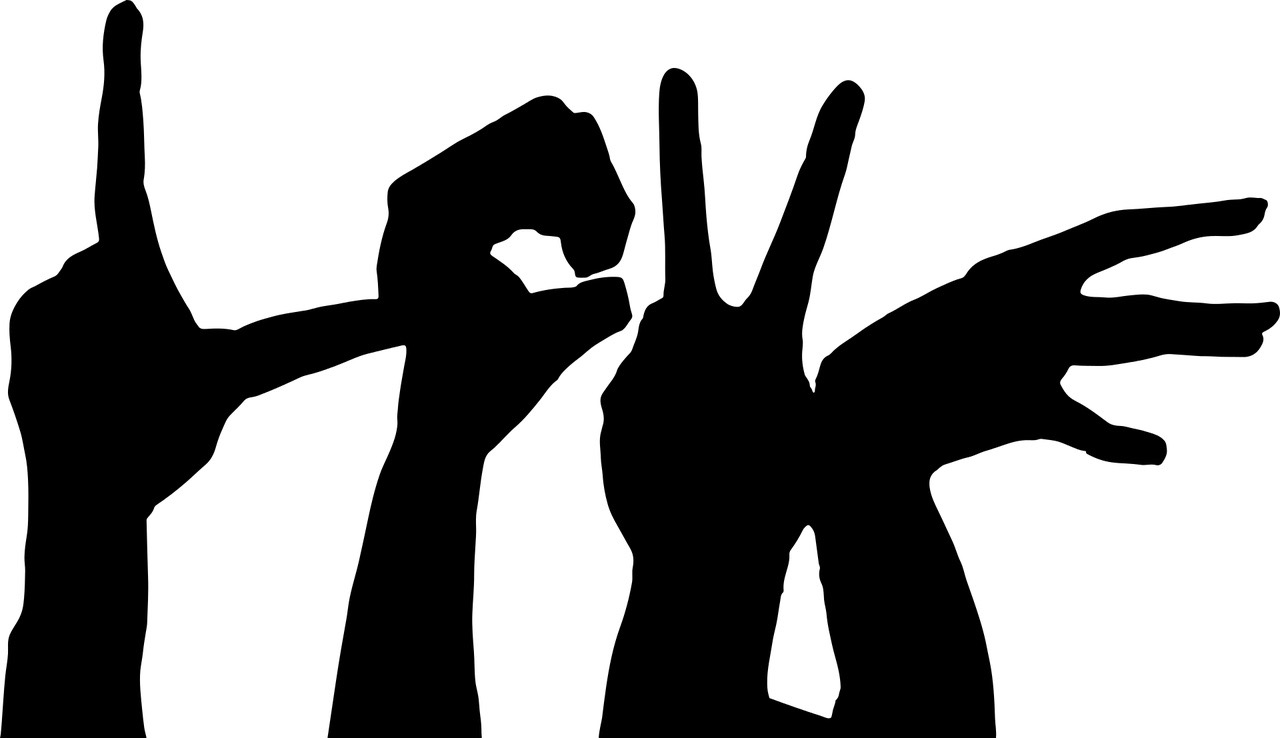
Vol. 9: Triggers, Trauma & Unconditional Love
Last week I heard Glennon Doyle share with a friend this beautiful piece of insight gleaned from Dr. Galit Atlas, author of Emotional Inheritance.
Dr. Atlas performed extensive research in epigenetics before writing the book about generational trauma mentioned above and frequently speaks about legacy wounds.
If you're unfamiliar with the term, this is how Glennon put it:
“There's this wound in our life, in our childhood, and then, if and when we create this healthier version of ourselves, what we often do next is recreate what happened to us so that we can end it differently.
It's just this idea that—the way we take back some of the power of our childhood—we either repeat it mindlessly, or we do this repair thing, which is to repeat it but end it differently. And that, that's healing.”
Upon hearing this, I began thinking about my childhood and yours, the scripts we all hold, how they formed, and what they have to say about our self-worth and integrity.
Often, I find myself questioning how I should go about finally feeling worthy of the absolute love we are all entitled to by the simple virtue of our humanity and how to share it with my son.
Children are worthy of respect and dignity. Their personhood—everything they are and are not—gives them the right to unconditional love.
As parents, we love them that way; we love them so damned much we would kill for them. But, at some point, we all lose that truth about ourselves.
For one reason or another, we all have parts of ourselves that we don't like or think society won't like. So we push these parts down into our unconscious psyche.
Swiss psychiatrist Carl Jung referred to this collection of repressed assets of our identity as a shadow side or shadow self.
According to Jung's theory, we distance ourselves psychologically from those behaviors, emotions, and thoughts that we find dangerous or unacceptable.
Seeing in others what we won't admit we don't like about ourselves is the definition of projection. So when I see something in you that I don't like about myself, I project that onto you through anger, disapproval, and rejection.
I don't know about you, but I regularly see my shadow side in my son. And, pardon my Millenial colloquialism here, but the kid triggers me!
Don't get me wrong; I believe our children are sent to us to aid in our healing.
I wholeheartedly do.
That said, I am in no way implying that kids are responsible for caring for their parents; a kid's job is to be a kid.
But, sometimes—as a result of being a kid—these little bringers of healing light will do things that trigger specific scripts or fears that we parents have about who or what we need to be worthy of love.
That's a good thing! At least, if, like me, you're on a transformative journey, it's a good thing.
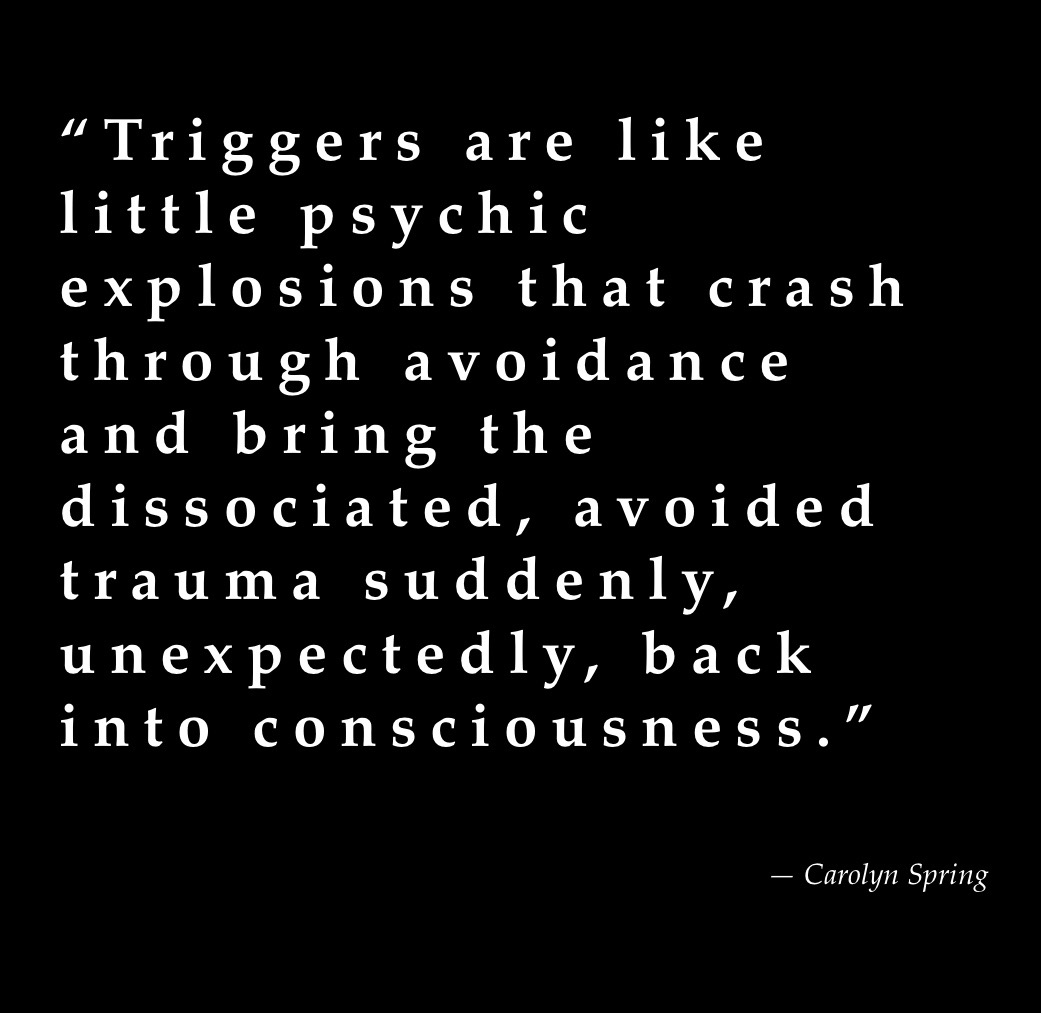
THE EXACT NATURE OF OUR TRIGGERS
Emotional triggers are an invitation to process our pain and heal.
A trigger comes along and says,
”Hey, I noticed you have some unprocessed pain within you. I'm pointing it out to remind you it's there, and perhaps you should address it now.”
We must remember that triggers are not assaults; on the contrary, they arise to help us.
When we're young, we form internal working models of ourselves, others, and our environment through our interactions with significant people in our lives, namely our caregivers.
We're all born with a biological drive for survival; as a result, babies have signals that alert the caregivers of their needs.
These signals are known as attachment behaviors. At first, they're instinctual, like a newborn crying when hungry.
But, we quickly start learning what works and what doesn't to keep our caregivers close to us where we feel safe and loved, then we adjust our approach.
By the time we are merely six months old, an outsider can look at how we respond to separation and reunion and know about our attachment relationships.
That process continues as we grow and become more aware of ourselves as individuals. We still seek information on ways to stay safe and, ultimately, how to be loved and begin trying to live up to that.
By the time we're in grade school, we have a relatively firm grip on what makes a person lovable. However, we learned that certain personality traits and quirks put us at risk of losing love.
We're already carrying wounds and learning to mask ourselves against the danger of unworthiness and vulnerability.
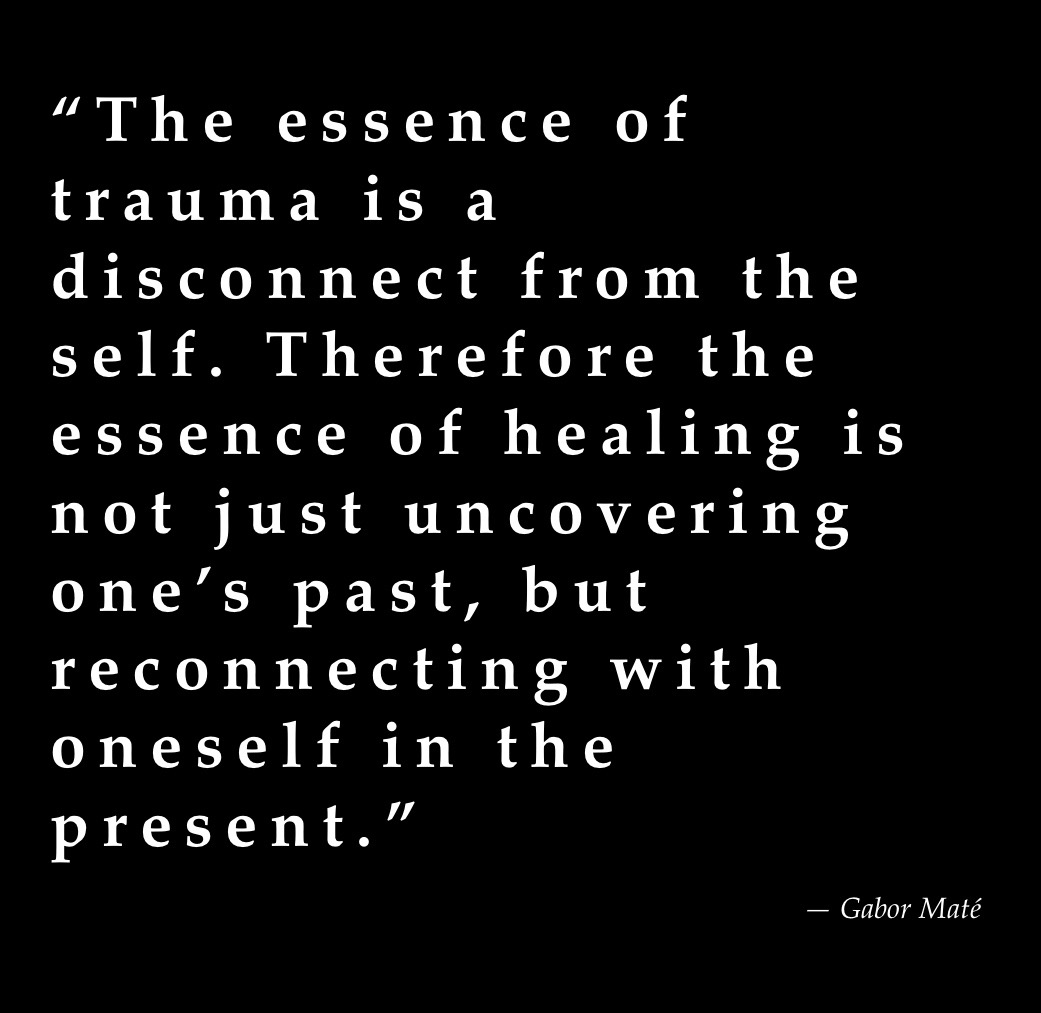
HEAL YOUR TRAUMA, MAMA
We all have these wounds, no matter the diverse details of our upbringing. We are children of wounded people who are also kids of the wounded.
But, the woundedness is all derived from the same source; fear of losing love and safety.
That's the human imperative.
Imprinted in our genetic code, over thousands of years of evolution, is a belief that connection equals survival; to stay connected, you must be lovable.
The meaning of lovable varies in myriad ways throughout unique cultures and families. Still, our core wounds are consistent because what constitutes lovability doesn't matter.
It's the fear of not being lovable that underlines the majority of our parenting and relationship triggers.
We must begin recognizing our triggers as transmissions from our bodies and brains, informing us that an old wound within us is begging for healing.
We cannot heal a wounded inner child by parenting our kids as we wish our folks parented us. That's projecting.
You already love your kids unconditionally, but if you don't want to pass on another multi-generational misunderstanding about the nature of your love, you must learn to communicate your unconditional love for your children through your actions and unspoken messages.
That's not possible with unhealed trauma.
We can heal our internal working models in several ways, and before I share a few of my favorites, I must warn you that these are practices, not check-off tasks.
The most straightforward exercise in healing I've found is journaling. It's a great way to engage in the process of becoming aware of the thoughts, scripts, and narratives that live within us.
A perfect compliment to journaling is establishing a more concerted self-compassion-based mindfulness practice. For example, consider a meditation centered around kindness and healthy self-love, which can bring us back to a place of gentleness and graciousness with ourselves.
Another trusted method on the list is one I've been dancing with throughout the blog thus far: reparenting work!
This endeavor is about becoming aware of the hurting child inside us and actively reparenting them.
For instance, when my son faces me with his shadow side—triggering my shadow self—and I choose to respond in a conscious, empathetic, and compassionate way, I'm also soothing my inner child.
This practice allows me to fully see my son's needs instead of being distracted by the hurting little girl within me.
There are other techniques and strategies that I believe in, such as Cognitive Behavioral Therapy and Internal Family Systems oriented treatment; however, these aren't as DIY-friendly. But, I encourage you to explore both with a licensed therapist.
In my personal life, I use these practices to create parenthood I don't have to escape from and childhood my son won't have to recover from.
Healing the wounds eliminates the triggers; that's the pathway to happiness and unconditional love.
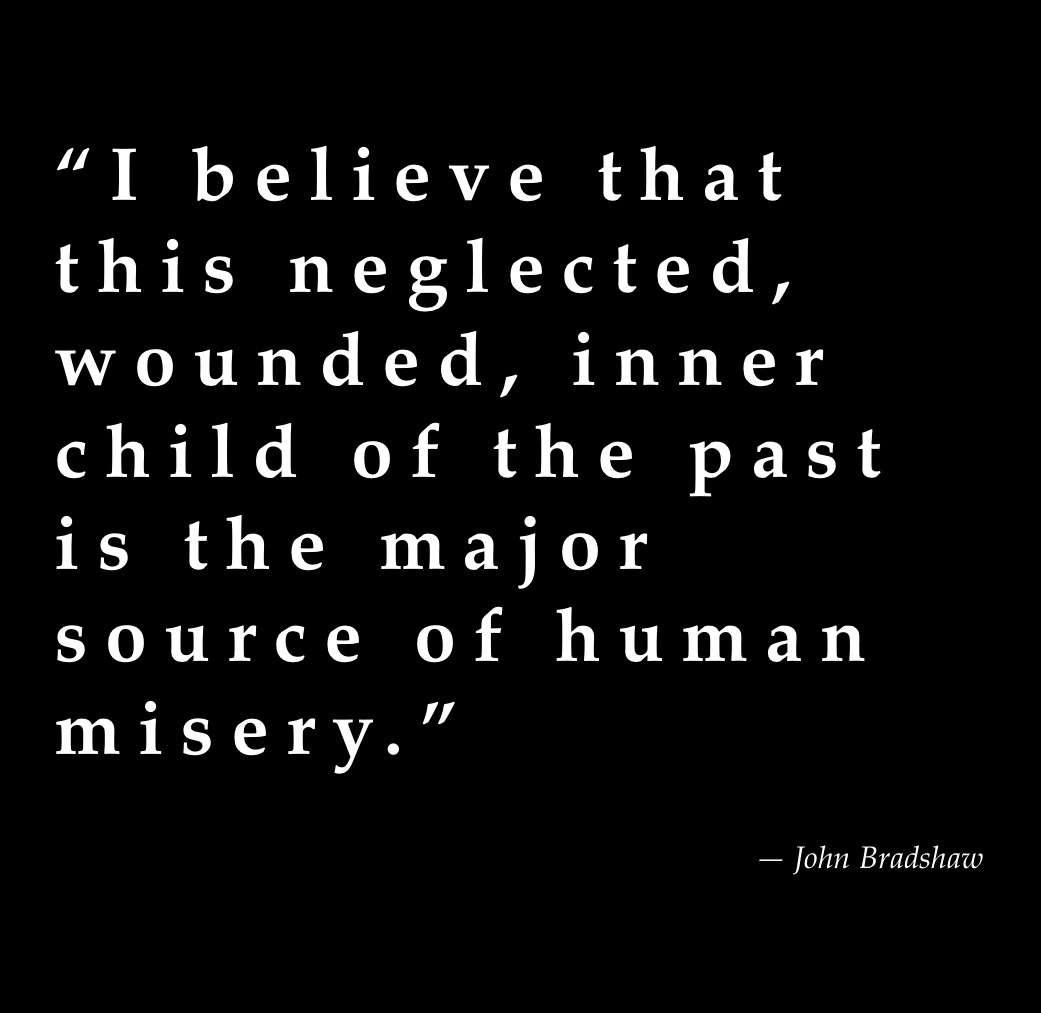
LOVE WINS ALWAYS
Love is divinity recognizing divinity.
When the light recognizes the light, that is love.
And this recognition, this love, isn't limited to one person recognizing the divine light in another person; that's only part of it.
We heal and transform our traumas—the parts of us that no longer serve us—by recognizing them as the divine.
This recognition is love.
When we can see our pain, fear, and doubt as manifestations of the divine, just like joy, peace, and bliss are, then we can move through them.
Instead of repressing our feelings, we must accept them no matter their flavor.
By allowing our emotions to exist, we love them and ourselves for who we are; consequently, we permit our pain to dissolve.
Honor your dark emotions, they are as divine as anything else.
Please remember that spiritual awakening doesn't typically happen in a flashing moment.
It's usually a falling out. So, gradually our lives will align more with the truth we've awakened to and the healing we've done.
But, there is no healing without facing our wounds directly. The shadow doesn't dissolve until we cast light upon it. It's easy to know what love is. But, unfortunately, it isn't easy to love.
Transformative, unconditional love is necessary, especially for parents raising children in this new paradigm that we're all experiencing.
The same goes for the collective; the fear society has been harboring will have to surface for us to see, face, and heal it.
The global events we've recently seen taking place serve in this way.
Our shadow is coming forth into the light.
Can we love it?
Can we see the darkest parts of our world as light in disguise?
Can the divinity within our awareness recognize the divinity in the outside world;
Even in the sad, grim, unlovable parts?
This Week’s Links:
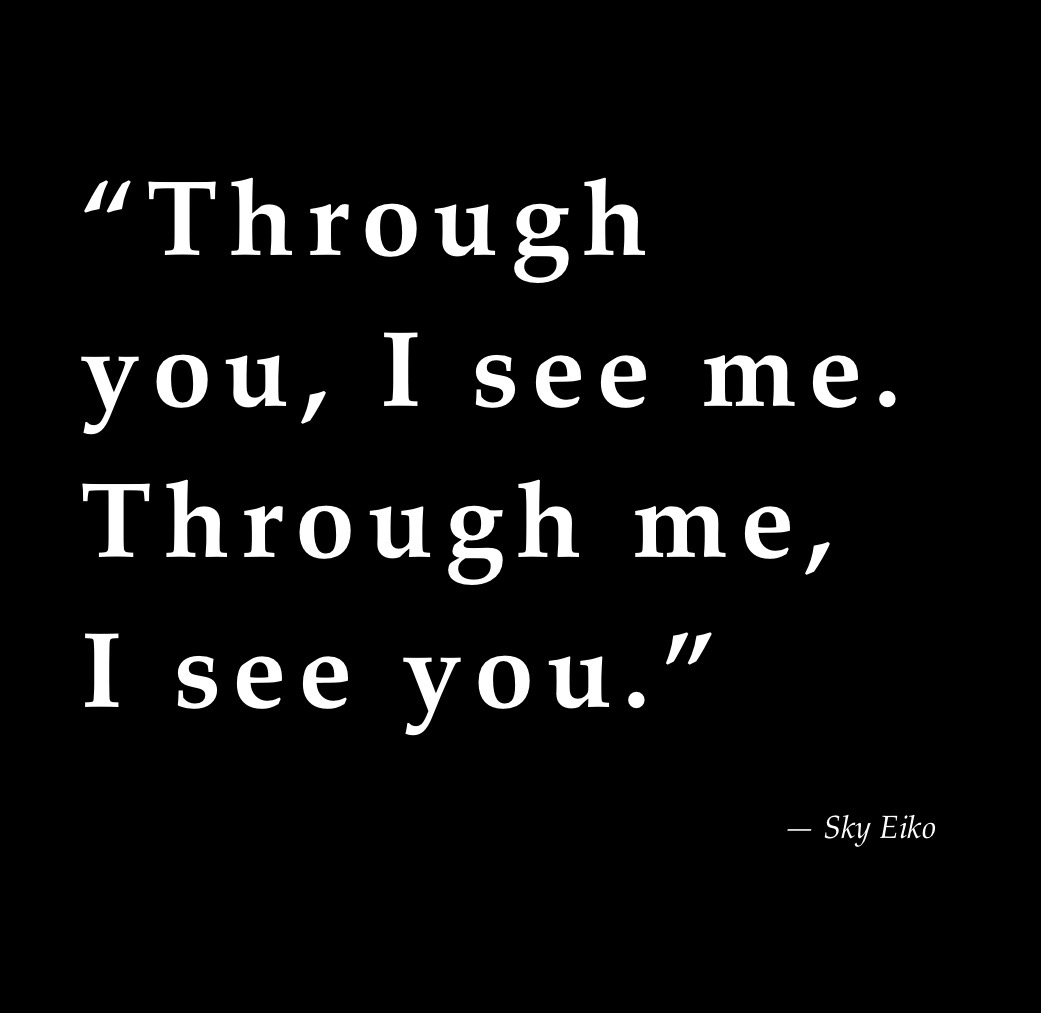
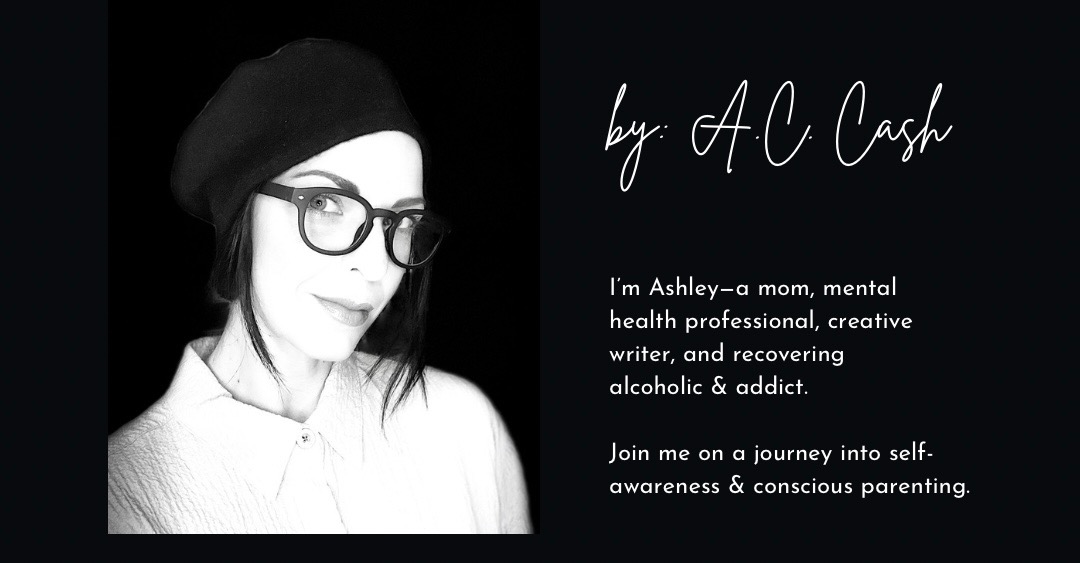
Post a comment